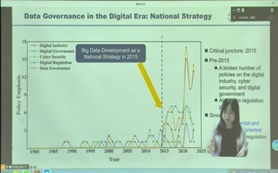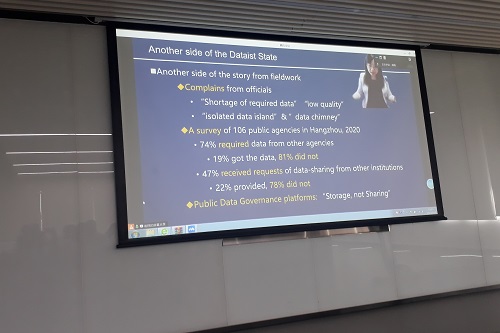Lecture on Governance of Public Data By Prof. Xiang Gao, Zhejiang University, Hangzhou on 18 Sep. 2025 at XiongAn China
I recently participated in a 2-Weeks training at XiongAn, China. Following are some details on the lecture titiled 'Governance of Public Data' By Prof. Xiang Gao, Zhejiang University, Hangzhou


In this lecture, China's approach to public data governance was discussed. The lecture elaborated that the Chinese approach emphasizes state-led, data-driven digital government, with AI, big data, and specialized technologies at its core. By 2035, the vision is to deepen reforms, enable collaborative governance across departments, and improve public service delivery through integrated government and internet services. The strategy includes building strong data acquisition and aggregation systems, improving data processing, and encouraging digital literacy-particularly for the elderly-to ensure inclusivity. While digital services expand, traditional offline options are retained to avoid exclusion. Challenges remain around cost, privacy, data quality, and uneven digitalization between public and private sectors, yet efforts focus on low-cost, accessible solutions and user-friendly application design.
Later on, it was discussed that at the policy level, China has positioned big data as a national strategy since 2015, with the establishment of the National Data Bureau (2020) and a framework balancing development, safety, and regulation. Laws such as the Personal Information Protection Law, Data Security Law, and Cybersecurity Law reflect the growing emphasis on privacy and governance. Public attitudes vary-citizens show more trust in government than private actors, with greater willingness to share non-sensitive than sensitive data. Case studies like Hangzhou highlight both optimism about service quality and concerns about surveillance. Overall, China's governance model seeks to leverage data as a key productive resource, balancing innovation, regulation, and citizen trust to guide long-term digital transformation.
Context:A two weeks training titled "International Training Program on Policies and Applications of Government Data Governance in Belt and Road (B&D) Countries" (14-28 September, 2025) was held at XiongAn New Area, China. The training was hosted by the Department of International Cooperation of the Ministry of Science and Technology, organized by Institute of Scientific and Technical Information of China (ISTIC) and co-organized by UNESCO-IFAP China National Committee, UNESCO IFAP Information for Development Working Group (IDWG) and XiongAn Group Digital City Company.
The training included 14 participants from eight countries-China, Pakistan, Sri Lanka, Brazil, Kazakhstan, Zambia, Iran, and Indonesia-representing a wide range of expertise, including public administration, computer science, international relations, environmental science, data governance, industrial management, information science, and international communication.



